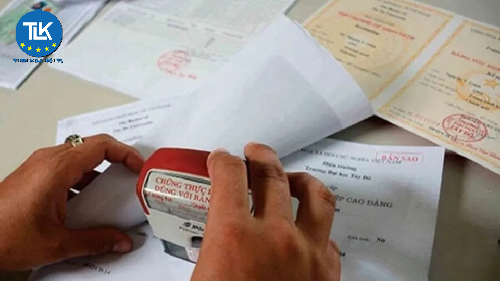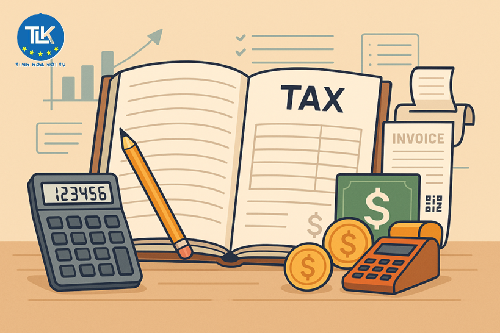On February 26, 2025, the Office of the National Assembly issued the Consolidated Document on the Law on Tax Administration (29/VBHN-VPQH). This document consolidates the Law on Tax Administration 2019 and Law No. 56/2024/QH15 dated November 29, 2024.
=> See more: The procedure for extending tax payment has been amended effective from April 25, 2024.
 Photo 1: The latest consolidated Law on Tax Administration _ Hotline: 097 211 8764
Photo 1: The latest consolidated Law on Tax Administration _ Hotline: 097 211 8764
Accordingly, the latest consolidated document on the Law on Tax Administration is Consolidated Document No. 29/VBHN-VPQH issued by the Office of the National Assembly on February 26, 2025.
This consolidated document includes:
- Law on Tax Administration 2019, effective from July 1, 2020;
- Law No. 56/2024/QH15, effective from January 1, 2025.
In addition, the rights of taxpayers are specifically defined in the consolidated document as follows:
According to Article 16 of the Law on Tax Administration 2019 (as amended in 2024), the rights of taxpayers include:
1. To receive support and guidance in fulfilling tax obligations; to be provided with information and documents to fulfill their tax rights and obligations;
2. To receive documents related to tax obligations from competent authorities during inspections, examinations, or audits;
3. To request the tax authority to explain tax calculation or tax imposition; to request appraisal of the quantity, quality, and type of exported or imported goods;
4. To have information kept confidential, except for information required by law to be provided to competent state authorities or publicized according to legal regulations;
5. To enjoy tax incentives and refunds as provided by tax laws; to be informed of the time for processing refunds, non-refundable amounts, and the legal basis for non-refund;
6. To sign contracts with tax procedure service providers or customs agents to carry out tax or customs declaration services;
7. To receive tax handling decisions, tax inspection and audit records; to request explanations of tax decisions; to reserve their opinions in tax inspection/audit records; to receive inspection/audit conclusions and final decisions from tax authorities;
8. To be compensated for damage caused by tax authorities or officials as regulated by the law on state compensation liability;
9. To request certification from the tax authority on their tax payment obligations;
10. To file complaints or lawsuits against administrative decisions or acts affecting their legal rights and interests;
11. Not to be subject to administrative penalties or late payment interest if they acted according to official guidance or decisions from tax or relevant state authorities on tax obligations;
12. To report violations of the law by tax officials or other organizations/individuals in accordance with the law on denunciation;
13. To search, view, and print all electronic documents sent to the tax authority’s portal, as stipulated by the 2019 Law on Tax Administration and the law on electronic transactions;
14. To use electronic documents in transactions with tax authorities and related organizations or agencies.
Thus, the issuance of the consolidated document aims to unify the legal system, facilitating easier access, application, and enforcement of tax laws.
=> See more: Tax exemption policies designed to facilitate the development of the private sector economy.

Photo 2: Free legal consultation _ Hotline: 097 211 8764
Department of Socio-Economic General Affairs – TLK Law Firm Co., Ltd.
Dear readers, in addition to providing useful knowledge about economic, cultural, and social life, TLK Law Firm Co., Ltd. also offers professional services in legal consultation, accounting – tax, and trade promotion with many years of experience.
With the desire to fulfill our social responsibility, if you need legal advice, please contact us via the hotline: 097 211 8764 to receive direct consultation from a lawyer (completely free of charge).












